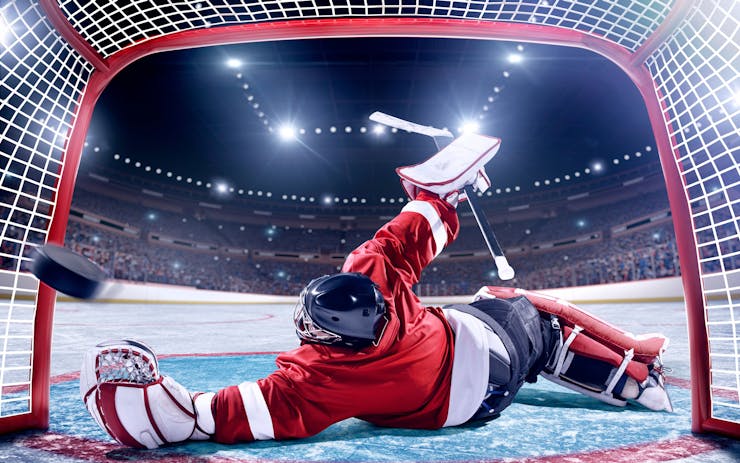When Glenn Healy, head of the NHL Alumni Association, recently announced that a hundred retired players would be given CBD in a study examining the compound’s possible role in treating pain and post-concussion neurological disorders, many former athletes celebrated—especially those struggling with depression, post-traumatic stress disorders (PTSD), and dementia from chronic traumatic encephalopathy (CTE). But one question lingered in the minds of some people: “What about THC?”Join the Leafly Community“I know some former players who are using THC instead of CBD to cope,” said Rob Frid, who suffered dozens of concussions while playing junior and minor league hockey and now suffers from chronic pain and debilitating neurological problems. (The 43-year-old has been diagnosed with dystonia, a disorder that causes painful muscle spasms.) “There is no doubt in my mind that studying THC would be beneficial,” he told Leafly.
Researchers have been pointing to THC as a possible treatment for brain injuries for decades. In 1998, the Proceedings of the National Academy of Sciences of the United States published a report outlining the neuroprotective properties of cannabidiol (CBD) and tetrahydrocannabinol (THC). Those findings formed the basis of a US government-held patent on cannabis compounds as antioxidants and neuroprotectants. The government stated that both compounds could play a role in limiting neurological damage following stroke and trauma.
In 2013, Israeli researchers discovered that cannabis may prevent long-term brain damage when THC is administered before or shortly after injury. They found that doing so induces the biochemical processes necessary to protect critical brain cells while preserving long-term cognitive function. In fact, Israel Defense Force doctors have administered CBD or low-dose THC as a first-line treatment to soldiers who suffer brain trauma.
In recent years, a professor of psychiatry at Harvard University, Lester Grinspoon, has made waves by stating his belief that cannabis can make athletes more CTE-resistant. Grinspoon, who made his case for cannabis in an open letter to the NFL in 2014, also believes that THC stimulates healing after traumatic brain injury.
THC plays a role in pain management, according to Tony Iezzi, a psychologist who specializes in treating patients dealing with brain injury and chronic pain. “CBD alone won’t always cut it when it comes to treating pain. You need something more, and that is where THC comes in,” he told Leafly, adding that the two compounds work in tandem to treat pain.
Iezzi, who is affiliated with the London Health Sciences Centre in London, Ontario, believes that only CBD is front and centre in the NHL Alumni Association study in part because of the stigma associated with THC, which has psychoactive properties. “I think they chose to focus on CBD because it’s the more socially acceptable of the two cannabis compounds. They have to start somewhere,” he added. “At some point they will have to devote some attention to the effects of THC.”
His views are echoed by Mark Ware, the chief medical officer at Canopy Growth, an Ontario-based licensed producer that has partnered with the NHL Alumni Association and Neeka Health Canada to conduct this clinical research.
Ware, who has been an associate professor of family medicine and anesthesia at McGill University and is a well-known cannabis researcher, sees potential in THC to treat pain and post-concussion neurological disorders.
But it’s not front and centre in this study partly because of the stigma, he told Leafly. “There is a long history of people thinking of THC as a substance of abuse. We have to be conscious of that.” He cites another factor, too. Having THC in their system might pose a problem for study participants required to undergo drug tests for employment or insurance purposes. “There are many reasons to be careful with regards to THC, especially among those who must test clean for it,” he said.
That being said, Ware has not ruled out incorporating THC into this study, which is expected to begin this summer and take a year to complete. He explains that the study has three arms. The first group of participants will take CBD, the second group will be given a placebo and the third group will be administered CBD along with one other element—one that is yet to be determined. Will it be THC?
“Nothing is written in stone at this point,” said Ware, adding that the goal of the study is to help determine “the secret sauce” that can be used to treat pain and post-concussion neurological disorders.
Shop highly rated dispensaries near you
Showing you dispensaries nearWare said that if THC isn’t examined in this study it could very well be incorporated into a future study. “There is no scientific reason for not looking at it,” he conceded.
Though Frid is disappointed that THC is not at the fore of the upcoming NHL alumni study, the former hockey enforcer sees the initiative as a positive development. “NHL alumni are no longer saying, ‘Let’s wait for the science.’ They are making it happen. They are taking a step forward,” said Frid. “It’s amazing news.”





